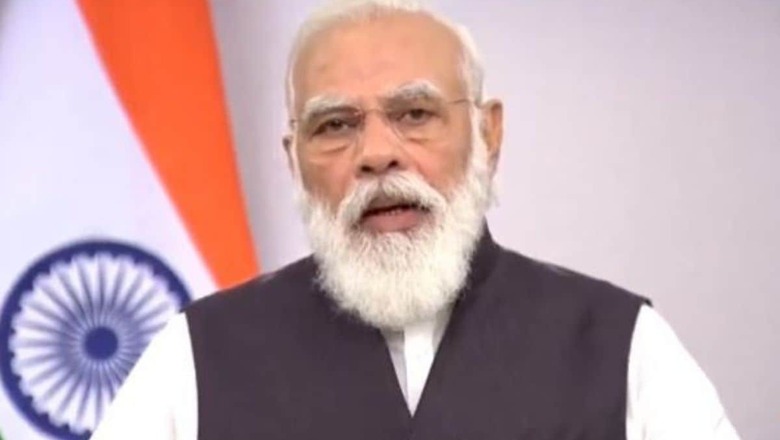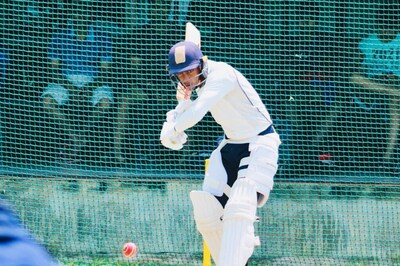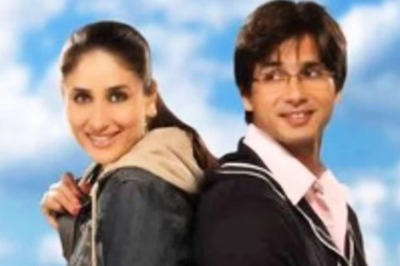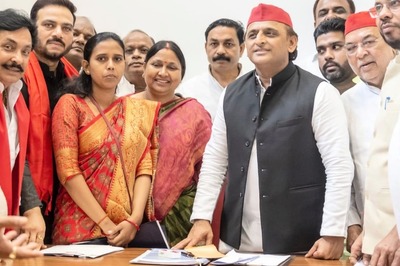
views
Prime Minister Narendra Modi on Monday asserted that the new National Education Policy (NEP) policy focuses on learning instead of studying and goes beyond curriculum to focus on critical thinking. It is a collective responsibility of all stakeholders to implement the policy in letter and spirit, he said, adding that the pressure on students for taking specific streams has been removed in the NEP, first since 1986.
“Our youth will now be able to learn according to their interests," he said while addressing the inaugural session at the 'Governors' conference on the Role of NEP in Transforming Higher Education'. Earlier, students used to pick a stream beyond their aptitude and they would realise it much later, and these problems have been addresses in the NEP,” the prime minister said. With vocational exposure right from early age, our youth will get better prepared for life, he added.
PM Modi said that the participation of the youth in the global job market and employability in India will increase with practical learning and the education policy, like defence and foreign policies, is not of the government but of the country.
India has been ancient centre of learning, and the government is working to make it hub of knowledge economy in the 21st century, he said. "It is our collective responsibility that the policy is implemented in letter and spirit. The more teachers, parents, students are associated with education policy, the more relevant and broad-based it will be," the PM added.
The prime minister said that new policy has paved way for international institutions to set up their campuses in India. The NEP approved by the Union Cabinet in July replaces the 34-year-old National Policy on Education framed in 1986 and is aimed at paving the way for transformational reforms in school and higher education systems to make India a global knowledge superpower..
Last month, PM Modi had emphasized on the need to teach children in their mother tongue and said that there is no dispute that students learn faster in the dialect they speak. He stressed that the new national education policy will usher a “new world order” and will lay foundation of a “new India in 21st century”.
“There is no dispute that children learn faster in the dialect they speak at home. This is a major reason for the NEP to include imparting of education in children’s mother tongue at least till class 5,” PM Modi said during his inaugural address at the conclave on ‘Transformational Reforms in Higher Education under National Education Policy’.
Modi further said the NEP 2020 would usher in a “new world order”. “It gives me immense pleasure to know that after the National Education Policy was released, there were no major protests from any part of the country, neither were there allegations of it having any bias,” the prime minister said, adding that the policy was approved after brainstorming over it for four years.
The PM said that through NEP India will transform its students into global citizens who are rooted in their values. “In recent years, there have not been major changes in education and thus the values of curiosity and imagination were not given the thrust. Instead, we moved towards a herd community. The mapping of interest, ability, and demand was needed. We need to develop critical thinking and innovative thinking abilities in our youths. It will be possible if we have purpose, philosophy, and passion of education,” said Modi.
According to NEP, students will have to undertake school examinations at pan India level in grades 3, 5 and 8, which will be conducted by an appropriate authority. Board exams for grades 10 and 12 will be redesigned.
The policy has also advocated a “broad-based, multi- disciplinary, holistic undergraduate education with flexible curricula, creative combinations of subjects, integration of vocational education and multiple entry and exit points with appropriate certification”.




















Comments
0 comment